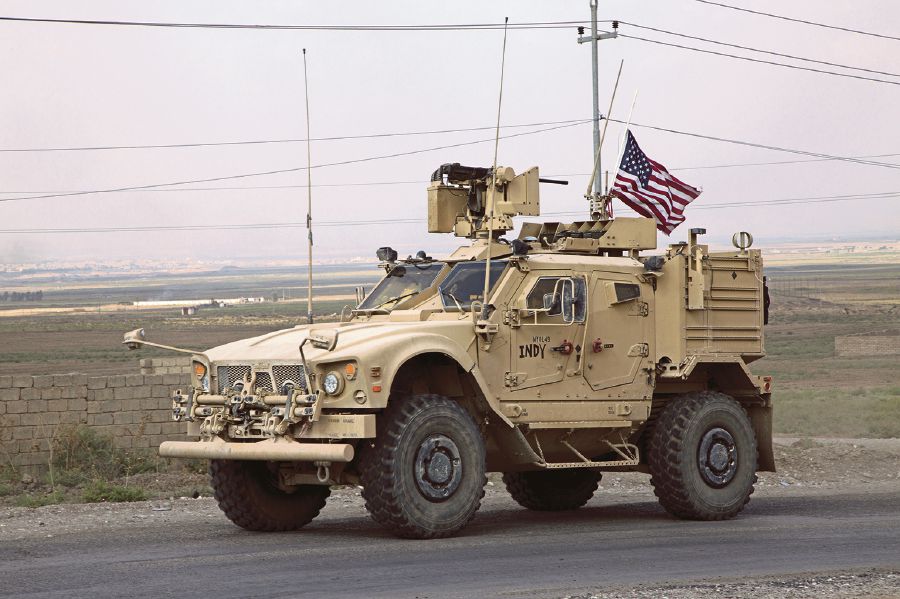THAT national interests determine foreign relations is the received norm and has been operating, especially under Western hegemony, forever. Hence, the inability of Western foreign relations’ experts to perceive a win-win configuration of the Chinese kind in Africa and Asia. And, nothing has changed.
American imperialism today is no less about its own interests. This premise denies the possibility that the recent US withdrawal from Northeast Syria is anything but for self-interest. Reports suggesting American troops are still in the oil-rich areas east of the Euphrates signal this unequivocally.
Ultimately, this could be the spanner in the works for the so-called win-win-win-win arrangement in Syria. The US withdrawal has four beneficiaries; Syria obviously, Russia now the undisputed power in the region, Turkey to vanquish the Kurds with little resistance and the US itself, falsely claiming it has eliminated the Islamic State and so is victorious, a claim undisputed by the resistance powers if it serves to get rid of the US.
But America is more than just its oil interests. Is it mere coincidence that Trump is bringing home the troops to Saudi Arabia, so to speak? Whether as a mercenary army or otherwise the implications of American military build-up in Saudi Arabia coming so soon after the damage to the Saudi oil installations, reducing the country’s production by half, and the capture of Saudi military brigades within her borders by the Houthis, are nothing short of alarming vis-a-vis Saudi security.
At the end of the Second World War, Franklin Delano Roosevelt and the Saudi king, Al-Saud, came to an agreement that the US would protect the Saudi monarchy in return for cheap oil and the perpetuation of the oil trade in US dollars. Therefore, the vulnerability of Saudi Arabia equates in most minds with the failure of the US military defensive hardware, to protect.
On the surface Washington refuses to believe that it was the Houthis of Yemen, despite claims by them. The fact remains more needs to be done for Saudi security irrespective of whether it was Iran or the Houthis who mounted the attack.
Saudi security is actually everybody’s concern. It is no exaggeration to assume that the destruction of Saudi oil production capacity can affect the world economy as the world’s biggest supplier would be off the market.
Oil prices would go through the roof. When barrels of oil are priced too high, it makes production uneconomic. When global oil-based production — these are more than many — cannot accommodate the impossibly high price of oil in their cost of production, economies around the world are affected resulting in economic slowdowns if not recessions.
There is also the recent disclosure of how the US and Saudi Arabia are joined at the hip, more or less. According to a Bloomberg report by Andrea Wong, in 1974 the then US treasury secretary, William Simon, was tasked by president Richard Nixon to “neutralise (sic) crude oil as an economic weapon and find a way to persuade a hostile kingdom to finance America’s widening deficit with its newfound petrodollar wealth”.
But the arrangement was kept a secret at the request of the then Saudi monarch and until the recent disclosures, it had stayed a secret for four decades. The total US debt owned by the Saudi government represents 20 per cent of the kingdom’s US$587 billion worth of foreign reserves. Keeping the Saudi kingdom afloat then is of immense importance under the current circumstance where Riyadh is running a deficit and may be forced to liquidate its assets.
Bloomberg speculates that the worry is that the kingdom may even use its “outsize position in the world’s most important debt market” as a weapon. Because Saudi Arabia led the oil embargo which sent the American economy into a tailspin in 1974 which, in turn, sent Simon to the kingdom.
Fulfilling its position as guarantor of Saudi Arabia’s security then becomes an imperative of paramount importance when the Saudi war with Yemen is at its most threatening to Riyadh. Defeating the Houthis is very much a US interest. American boots are stomping the sands of Saudi Arabia.
The acquiescence of the Pentagon to Trump’s troop withdrawal from Syria and increasing the number of US troops in Saudi Arabia by 1,800 and military hardware bespeaks an underlying urgency that is creating a consensus in the Trump Administration.
The last time Trump announced a withdrawal in Syria his defence secretary resigned. That consensus is to defeat the Houthis. An escalation of the war on Yemen then is very likely.
The main purpose of the escalation would be to safeguard the Saudi position and consequently secure US interests in the most important oil-exporting region of the world.
The writer is the executive director, International Movement for a JUST World
The views expressed in this article are the author’s own and do not necessarily reflect those of the New Straits Times



